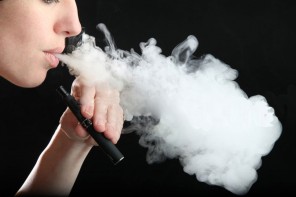When you hear the term “binge drinking”, you usually picture a scene out of X-Factor with a bunch of college students doing keg stands, body shots and poking holes into beer cans and sucking out the beer (while being sprayed in the face with foam). Most people can at least identify with the college drinking scene – the idea was to get drunk, not to sit around chatting over a glass of dry red. In many cases, parties, clubs and socials at varsity residences would feel a bit like something out of the twilight zone if you weren’t “drunk enough” to enjoy it.
While many people move on after college (declaring it the “best three or four years that my liver would never survive again”), other people keep on drinking this way. They’ve graduated, obtained positions in highly lucrative careers, but they’ve formed part of a group classified as “highly functional alcoholics”. People who binge drink, get up and go to work, and are once again able to knock back a few drinks the following day. Rinse and repeat. Weekends are a whirlwind of booze-fuelled braais, drinks and recovering from hangovers. This may seem exhausting for a few people, but it’s reality for many others.
According to the National Institute of Alcoholism and Alcohol Abuse (NIAAA), 72% of people have a single period of heavy drinking. This period usually peaks between the ages of 18 – 24 and lasts (on average) for about 3 – 4 years. Others carry on as heavy drinkers, but now they’ve got more responsibilities and they’ve got more cash to spend on their hobby.
Working adults less responsible drinkers than students
In 2012, a survey commissioned by the alcohol charity Drinkaware found that students are actually more responsible drinkers than young adult workers. A poll of about 1,700 young people found that students thought it was less acceptable to end up in hospital (or in trouble with the police) after a night of drinking. Around 7% of the working adults surveyed, however, thought this was acceptable behaviour.
One can easily assume that young working professionals who binge drink during the week don’t have high responsibility or demanding positions at work, but research proves otherwise. According to a government investigation in the UK, women in professional and managerial positions are twice as likely to be drinking at least five days a week as those in other social classes. The same investigation also showed that a quarter of male professionals and managers drink at least five days out of seven (where men in unskilled occupations have a drink on fewer than one in five days).
*Melanie van Wyk, a 24-year-old Professional Assistant working at a small law firm in Johannesburg, says that there’s definitely a drinking culture amongst young professionals in her industry (I’m classifying young as 24 – 32 year olds). “Every Friday from about 2pm, we get together in the company’s bar. Many of us will drink heavily for about four or five hours before getting in our cars and driving home,” says Melanie, before listing shooters, spritzers, beer and hard liquor amongst the array of boozy varieties available in the firm’s bar – where everything is free and no breathalysers are used before getting behind the wheel.
“It’s not just the recently graduated clerks who overdo it – most of the younger professional lawyers, aged around 26 – 31, also get plastered. What makes it scary is the fact that if a lawyer gets caught drinking and driving, he or she could be disbarred and lose their license to practice. But I guess people tend to think they’re untouchable after a few drinks,” says Melanie.
*Gert Haywood, a 32-year-old single manager at an Engineering firm in Pretoria, says that he has between four and 10 drinks almost every week night, but that it doesn’t affect his work. “On weekends I also party hard – most of my friends drink and that’s generally we do on weekends. After parties, there are usually some pretty shameful, yet funny, stories and a bit of photo-untagging that needs to happen on Facebook. I’m probably one of the few people in my group of friends that drinks every night, though,” says Gert, before adding that he rarely gets hangovers.
“I’m lucky when it comes to hangovers – I don’t get them and I don’t think my drinking affects my work performance. Some days I’ll have less energy, and while I probably consume more than the daily limit, I wouldn’t consider myself an alcoholic,” says Gert.
Women increasingly at risk
According to an article in Psychcentral.com, women are increasingly at risk for alcohol disorders. This trend was concluded after a review of more than 30 published studies. “The literature on alcohol consumption indicates that younger birth cohorts, especially women, are increasingly at risk for the development of alcohol use disorders,” said Katherine M. Keyes, Ph.D., first author of the study.
In the past, gender differences were explained by biological differences in the body’s ability to metabolise alcohol. According to experts, heavy drinking poses unique risks for women (such as being more vulnerable to sexual violence as well as a greater risk of chronic diseases). Some of the other notable effects of binge drinking among young women are liver disease, breast cancer, heart disease, pancreatitis and osteoporosis, to name a few.
“The youngest patient I´ve had who died of alcoholic liver disease was a girl of 19. Women have got this attitude now that they´re equal to men in every respect and that includes drink. When they go out drinking they feel they´ve got to keep up with the men and drink just as much and unfortunately they can´t,” Dr. Chris Record, a liver expert, told BBC.
Dr. Record explains that drinking in moderation isn’t a problem for your body and that you can enjoy a night out without damaging your liver (if you don’t overdo it). The main thing that needs to change is our attitudes towards drinking, because even if you aren’t getting hangovers – you could still be doing long-term damage to your body if you binge drink on a regular basis.
*Names have been changed










